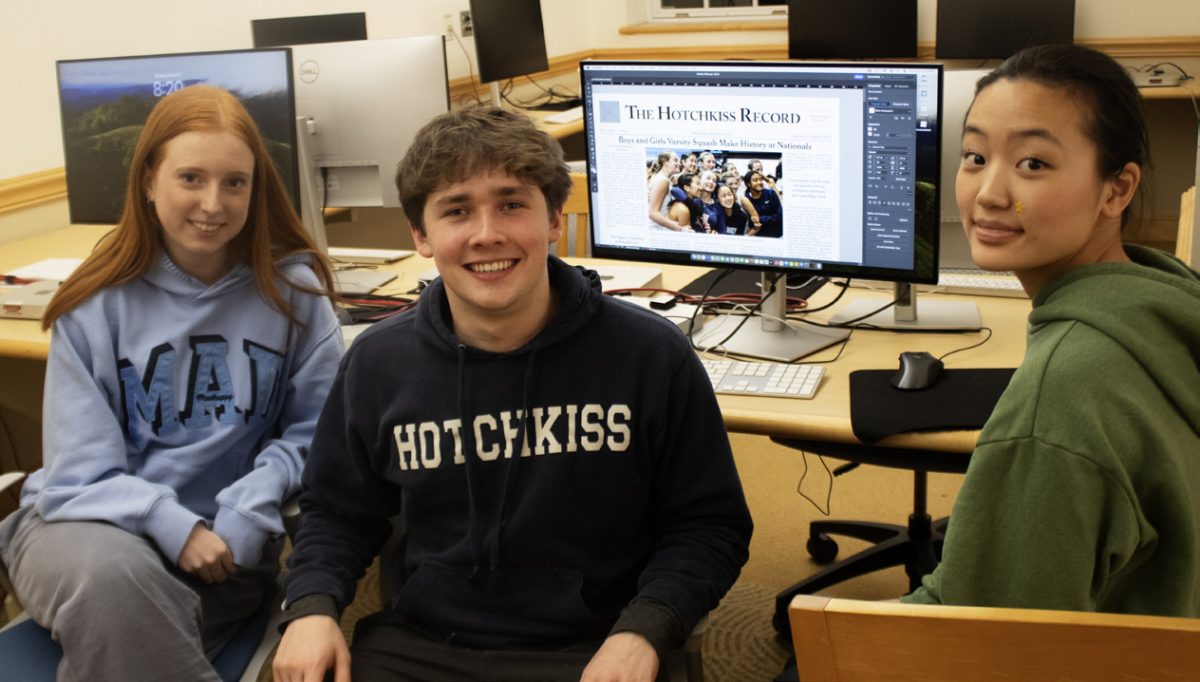Over the past few weeks, many of our Tuesday and Friday morning all-school meetings in Walker Auditorium have been centered on guest speakers. This includes the following: Preston Lecturer Ms. Lesley Blume, Ms. Connie Chung Joe speaking on advancing justice and interracial tensions, Dr. Bruno Carvalho ’00 speaking on LatinX Heritage Month, explaining his research at Harvard University on socio-cultural influences on urban planning, Mr. Jeff Perera, the wellness speaker, speaking on toxic masculinity and confronting life’s challenges, and Mr. Paul Lorem ’11 reflected on his life’s journey, including his roots in South Sudan, eventual PG year at the school, and current work with Kinyeti Academy. Following varying responses from the school community, an essential question arises — What makes a good all-school speaker?
First, many alumni speakers, with a standing relationship with the school, connect well with the student body. In past weeks, both Dr. Carvalho and Mr. Lorem, alumni of the school, have delivered speeches with fond references to their time at the school. Dr. Carvalho reflected on how his time at the school set him on his current academic trajectory, while Lorem spoke on how the school drastically changed his path, giving him one year to study in the U.S. before heading to Yale. Both men also shared nice personal stories, as Dr. Carvalho took a photo with the student body to send to his mom, and Mr. Lorem included a flashback photo of him in his PG year with some other students, including Mr. Mario Williams ’12, current instructor in biology. Mr. Lorem also mentioned Mr. Christopher Burchfield, instructor in English, who he remarked was an exceptional teacher. These types of references create a sense of relatability between the speaker and members of the school community, making them more receptive to the rest of the talks.
Second, it is crucial for the speakers to understand the specific type of audience they are talking to. While different for each topic, speakers who shape their speech and slides to the listeners, which for the most part, are well-informed 13-18 year olds, are most successful. This was well demonstrated by Dr. Carvahlo, who spoke on a pretty academically advanced level, but started with good context for the students. This made the rest of his message on the connection between culture and urbanization easier to understand, and well received by the students. Other speakers, such as Mr. Perera, somewhat miscalculated the audience, and instead spoke in metaphors and tangents that were not welcomed by students. Essentially, in preparation to speak at the school, speakers need to read into the school culture, either through online research or speaking with organizers. This would duly prepare them for the audience they are to speak to.
Finally, speakers must prioritize storytelling, as a medium for their main messages. This sometimes ties into the issue chosen, as some may lend themselves to good stories more than others. However, in every type of public speaking, especially in these long-form speeches, stories can express arguments far better than any other strategic devices. Metaphors, when not used sparingly, lead the listener to be stuck in a maze of incomprehensible allegories, losing sight of the main practical messages. Similarly, overwhelming slides, either too explanatory or too visual, also draw attention away from the speech, but into a vortex of images. What works well is engaging stories, such as Ms. Blume’s detailing of John Hersey ’32, and Mr. Lorem’s story of South Sudan, which further their speeches and really capture the audience.
Overall, all-school speakers offer great advice and insight to the school community, and even with varying degrees of success, it is vital that the administration works to keep scheduling speakers. It is just similarly important that when inviting specific people, we first evaluate whether or not they would be a good fit for the school, and then bring them in. Incorporating student and teacher feedback into the process, by either opening up a Google Form or even holding a Stu-Fac meeting on the topic of all-school speakers, could greatly help the process.



